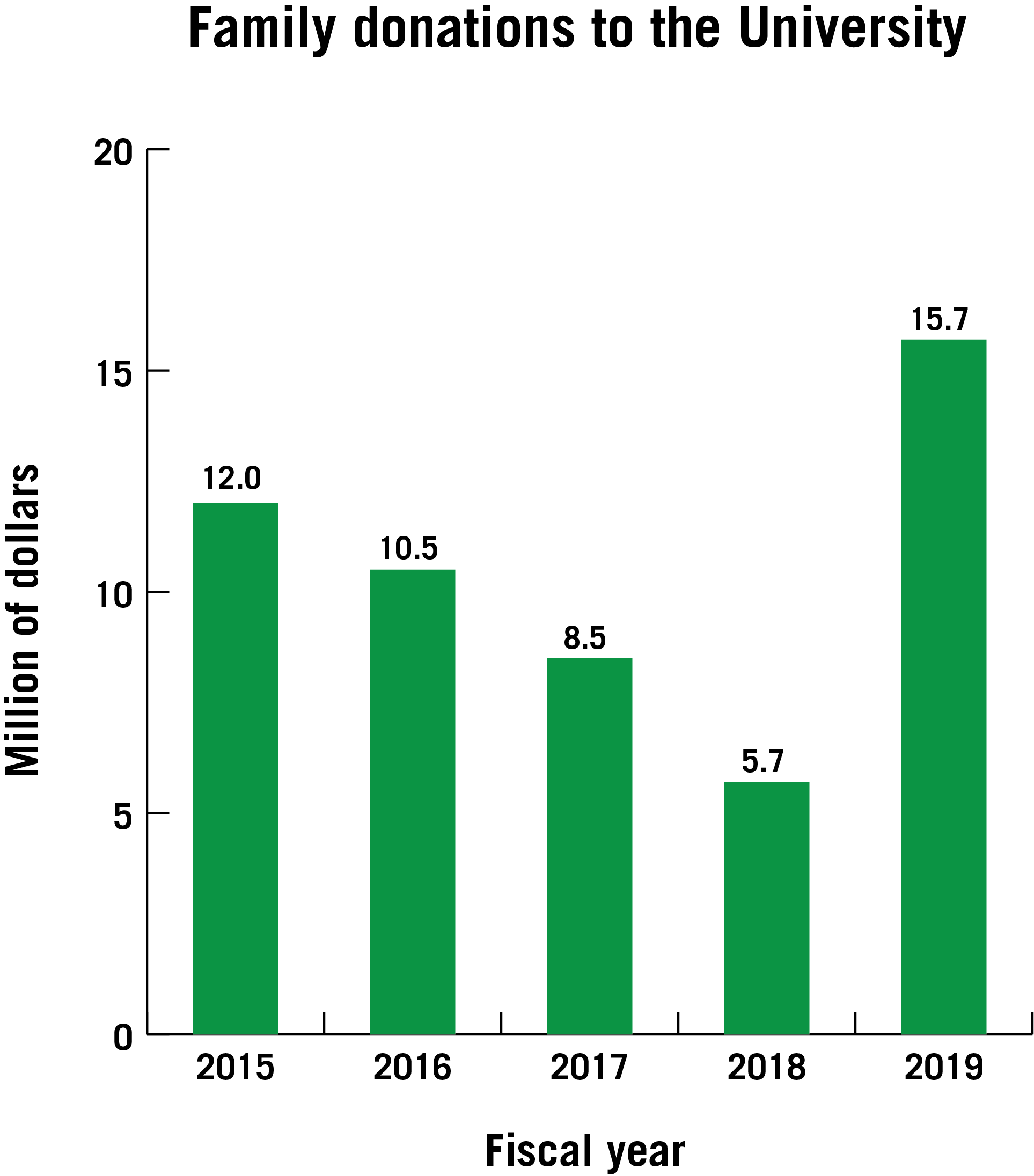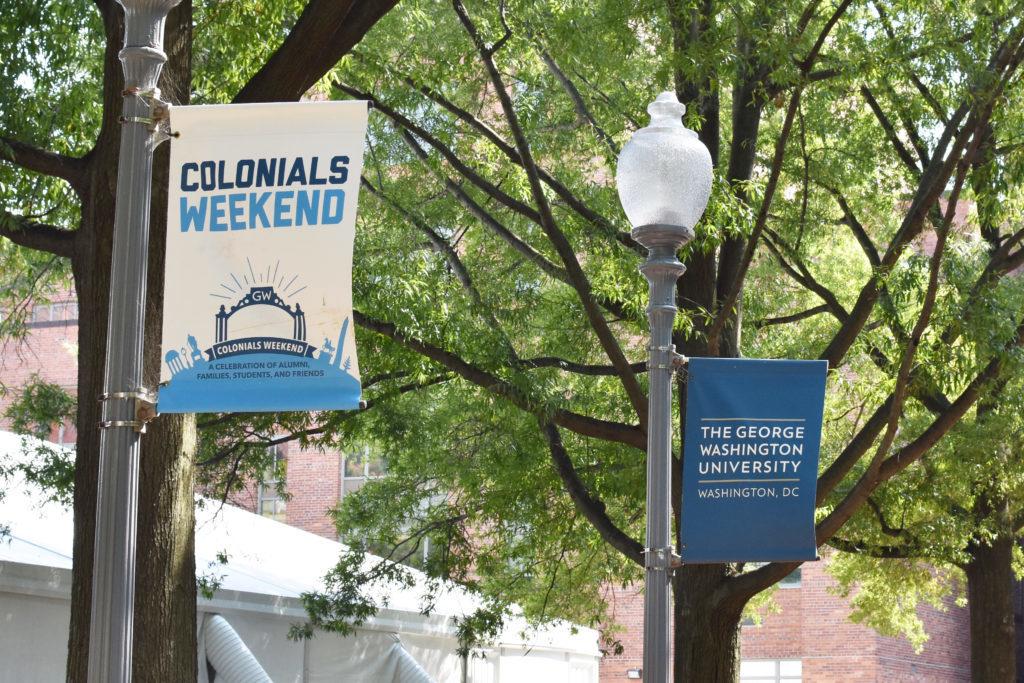Donations last fiscal year from families of students attending GW reached their highest point since at least 2012.
Officials said family donations hit $15.7 million last year after a three-year-long decline. University spokeswoman Crystal Nosal said staff in the Division of Development and Alumni Relations continue to strategically approach and prioritize prospective donors among families to increase the volume of parent donations.
“Staff across the University continue to collaborate to build relationships with families in a thoughtful way, taking advantage of natural opportunities for engagement over the course of the academic year, such as move-in, Colonials Weekend and commencement,” she said in an email.
Nosal said officials have received positive feedback from parents on staff efforts to “enhance the GW student experience” and improve this fall’s Colonials Weekend. About 4,000 alumni and family members attended this year’s weekend, a record turnout for the event.
She added that the University has raised on average $8.7 million each year over the past eight years from parents. The amount raised each year fluctuates because parents may donate at any point in their child’s time at the University or after their child graduates, Nosal said.

Alyssa Ilaria | Graphics Editor
Source: Division of Development and Alumni Relations
Donations from parents hit their lowest point in recent memory in 2012, when parents doled out $2.6 million.
Nosal said family donations support “all parts of the institution,” including scholarships and the Power and Promise Fund, which funds financial aid.
Higher education fundraising experts said parent donations are associated with parent satisfaction with their child’s school, and a higher donation level could signal parents’ confidence in the University’s ability to shape their children’s futures and careers.
Casey Heilig, the director of family engagement and philanthropy at Villanova University, said parent donations can greatly impact the student experience by funding scholarships for students and renovations to buildings.
Heilig said the volume of parent donations correlates with a school’s focus on philanthropic support and the existing quality of the school’s student experience.
“A parent’s experience with the school is shaped by their student’s experience,” she said. “Everything that goes right or wrong for the student while he or she is at school impacts a parent’s decision to donate.”
Heilig added that to raise the number and amount of family donations, schools can strengthen communication between the school and parents through social media and e-newsletters. Officials send a monthly newsletter to parents with University updates and events, like Colonials Weekend.
She said keeping parents informed about the resources available to students on campus – like career and professional development services, academic advising, tutoring and leadership opportunities – through communication can also boost donation levels by getting parents invested in what GW offers students.
“The more informed parents are about the good things happening at the school, the more likely they are to contribute philanthropically,” she said.
Sherrie Dodson, the associate vice president of university advancement at Baylor University, said family donations can signal parents’ satisfaction with the school and faith in the University’s mission.
Dodson said early communication with parents about the University’s financial needs will help ensure parent involvement through donations or volunteer efforts.
“It is important to explain the needs of the school,” she said. “Many parents do not realize that the university has unfounded needs.”





